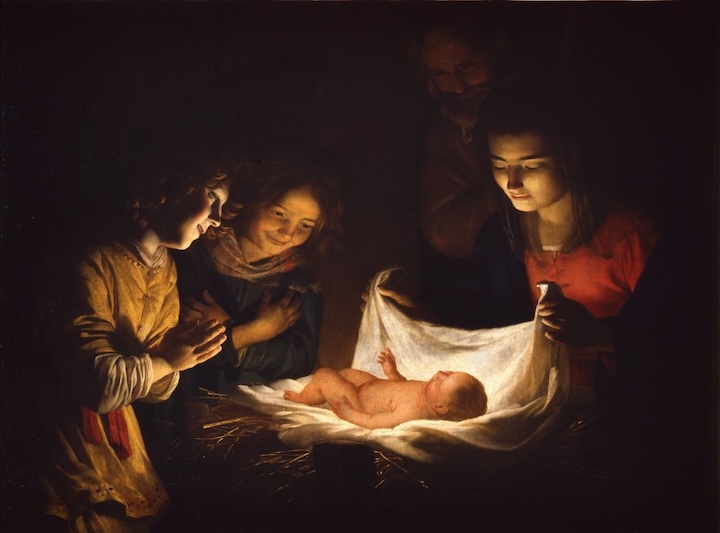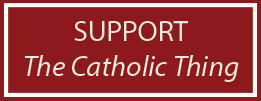Newness is crucial to Christianity, but what makes something truly “new”? What even does this word mean?
First, that it is crucial: “Behold, I am making all things new.” (Revelation 21:5) It is said by the One Who Was Seated on the Throne. Yes, the words are best rendered with the progressive present. Yes, they seem to have something to do with Creation.
Remember that the continuation of anything existing in the world is equivalent to its being created at each instant. Thus, metaphysically, there is no difference between your and my being present at the beginning of Creation, and witnessing it, and your and my being alive right now, after having been alive the instant before, and witnessing the world going forward now.
Pause and look around you and see the first moment of a new Creation.
So, this is something radically new: that, from the point of view of the very existence of the world, each instant is as if the world had not existed before.
G.K. Chesterton goes on to fashion an entire ethic from a similar insight, which he calls “The Ethics of Elfland” in Orthodoxy. This essay includes the great line, “As much as I ever did, more than I ever did, I believe in Liberalism. But there was a rosy time of innocence when I believed in Liberals.” As well as the more famous line, “Tradition means giving votes to the most obscure of all classes, our ancestors. It is the democracy of the dead.”
After explaining what he means by liberalism (which you should read), he goes on to speak as if he were David Hume. He says that he saw that the world is like a fairy tale. In a fairy tale, the only necessary sequences are mathematical and logical. For example, “If Jack is the son of a miller, a miller is the father of Jack.”
But no other developments are so:
The man of science says, “Cut the stalk, and the apple will fall”; but he says it calmly, as if the one idea really led up to the other. The witch in the fairy tale says, “Blow the horn, and the ogre’s castle will fall ”; but she does not say it as if it were something in which the effect obviously arose out of the cause. . . .she does not lose either her wonder or her reason.

When Chesterton himself began to realize that no connections other than the mathematical and logical are necessitated, he discovered wonder for the first time. He then found that his “strongest emotion” was:
that life was as precious as it was puzzling. It was an ecstacy because it was an adventure; it was an adventure because it was an opportunity. The goodness of the fairy tale was not affected by the fact that there might be more dragons than princesses; it was good to be in a fairy tale. The test of all happiness is gratitude; and I felt grateful, though I hardly knew to whom. Children are grateful when Santa Claus puts in their stockings gifts of toys or sweets. Could I not be grateful to Santa Claus when he put in my stockings the gift of two miraculous legs?
And then he began to appreciate that which existed, in relation to the nothingness that might have been. Such a realization, he says, is the true greatness of the book, Robinson Crusoe: “the best thing in the book is simply the list of things saved from the wreck. The greatest of poems is an inventory. Every kitchen tool becomes ideal because Crusoe might have dropped it in the sea.”
“All things have had this hair-breadth escape.” When he was young, Chesterton says, it was the fashion to size up people as failed or ruined geniuses, men who had not attained their potential, a “Great Might-Have-Been.” But he says, it is “a more solid and startling fact that any man in the street is a Great Might-Not-Have-Been.” Each of us has escaped the miscarriage that others have suffered, he says – or abortion (we can sadly add).
And all this he felt before he became a Christian. “And last, and strangest, there had come into my mind a vague and vast impression that in some way all good was a remnant to be stored and held sacred out of some primordial ruin. Man had saved his good as Crusoe saved his goods: he had saved them from a wreck.”
St. Josemaria Escrivá once said how pleased he was to learn that the Portuguese term for young people is “the new ones” (os novos). To be young, and to be new, are the same. Youthfulness too is essential to Christianity.
But how do we attain to newness ourselves? Is there any path besides conversion? “Put off your old nature,” St. Paul says, “which belongs to your former manner of life and is corrupt through deceitful lusts, and be renewed in the spirit of your minds, and put on the new nature, created after the likeness of God in true righteousness and holiness.” (Eph. 4:22-24)
Also: “Do not be conformed to this world but be transformed by the renewal of your mind, that you may prove what is the will of God, what is good and acceptable and perfect.” (Romans 12:2)
Chesterton’s first insight, that the continuing world is a miracle of creation, is the first thing we affirm in the Creed: God the almighty, “with whom all things are possible,” is even now the Creator. And that we are as if saved from a wreck is the second: “for us men and for our salvation, he came down from heaven.”
Catholics today seem plagued by mere resignation, to a “decline” they think they see around them. This Advent, the ecclesiastical New Year, a resolution: to put the old aside and, by conversion, to become new and young.

















